Did you know that over 40% of seniors experience leg or joint swelling, often linked to declining collagen levels? As we age, our bodies produce less collagen, a protein vital for healthy joints, skin, and blood vessels. This can lead to stiffness, puffiness, and discomfort in the legs. The good news? Certain vegetables are packed with nutrients that support collagen production and reduce swelling naturally. In this guide, you’ll discover eight collagen-rich vegetables that promote joint health and ease leg swelling, especially for seniors. With practical tips, recipes, and science-backed insights, this article will help you incorporate these veggies into your diet for stronger, more comfortable legs. Ready to say goodbye to swelling? Let’s explore these nutrient-packed foods!
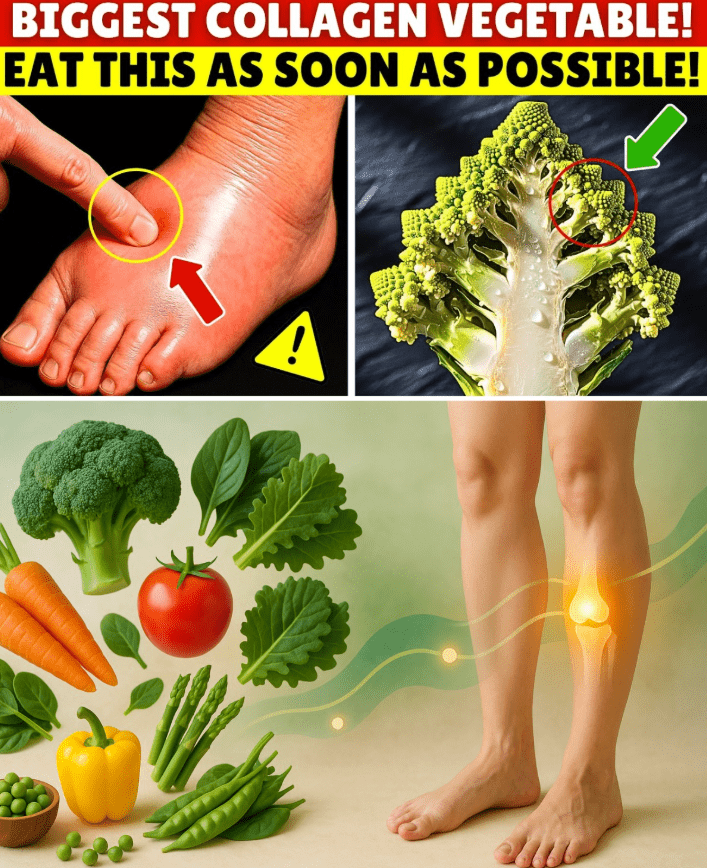
Why Collagen Matters for Legs and Joints
Collagen is the body’s most abundant protein, acting as a scaffold for joints, tendons, and blood vessels. In seniors, declining collagen can worsen swelling (edema) and joint pain due to weaker tissues and poorer circulation. A 2022 study in the Journal of Gerontology found that low collagen levels contribute to joint stiffness and vascular issues in older adults.
How Collagen Helps
- Strengthens Joints: Collagen supports cartilage, reducing stiffness and pain.
- Improves Circulation: Stronger blood vessels prevent fluid buildup in legs.
- Reduces Inflammation: Collagen-building nutrients lower swelling in tissues.
- Enhances Skin Elasticity: Firmer skin supports veins, reducing edema.
Vegetables rich in collagen-boosting nutrients like vitamin C, zinc, and antioxidants can enhance the body’s natural collagen production, offering a natural way to ease leg and joint discomfort.
8 Collagen-Boosting Vegetables for Seniors
These eight vegetables are packed with nutrients that support collagen synthesis, reduce swelling, and promote joint health. Each is easy to find and incorporate into meals.
1. Spinach
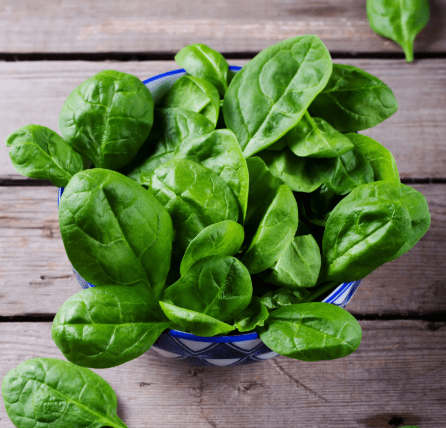
Spinach is a powerhouse of vitamin C, a key nutrient for collagen production.
- Benefits: Boosts collagen synthesis, reduces inflammation, improves circulation.
- Key Nutrients: Vitamin C, magnesium, antioxidants.
- Serving Idea: Add to smoothies or sauté with garlic for a side dish.
A 2020 study in Nutrients confirmed vitamin C’s role in collagen formation and joint health.
2. Bell Peppers
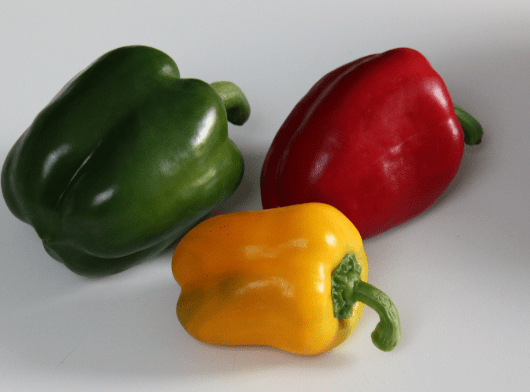
Red and yellow bell peppers are loaded with vitamin C and antioxidants.
- Benefits: Enhances collagen production, strengthens blood vessels, reduces swelling.
- Key Nutrients: Vitamin C, vitamin A, flavonoids.
- Serving Idea: Slice into salads or roast with olive oil.
Research from 2021 in the Journal of Clinical Nutrition showed bell peppers’ antioxidants support vascular health.
3. Broccoli
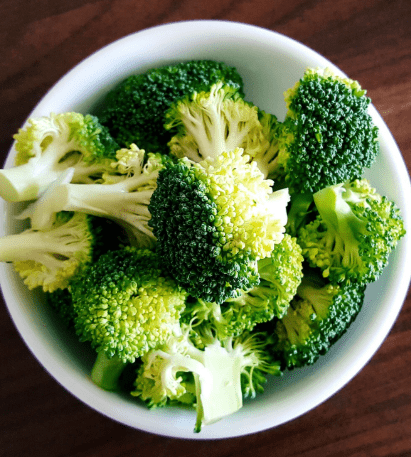
Broccoli contains sulforaphane and vitamin C, aiding collagen and joint repair.
- Benefits: Reduces joint inflammation, supports cartilage health.
- Key Nutrients: Vitamin C, sulforaphane, calcium.
- Serving Idea: Steam lightly and toss with lemon juice.
A 2019 study in Arthritis Research & Therapy found broccoli’s compounds reduce inflammation in joints.
4. Kale
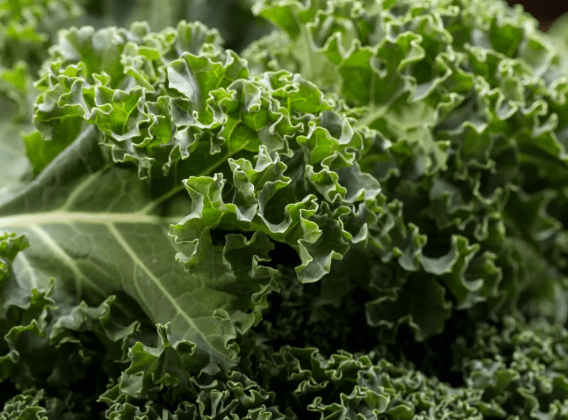
Kale is rich in vitamin C and copper, both essential for collagen synthesis.
- Benefits: Strengthens connective tissues, eases leg swelling.
- Key Nutrients: Vitamin C, copper, vitamin K.
- Serving Idea: Massage with olive oil for a nutrient-packed salad.
A 2020 review in Food Science & Nutrition highlighted kale’s role in supporting collagen production.
5. Brussels Sprouts
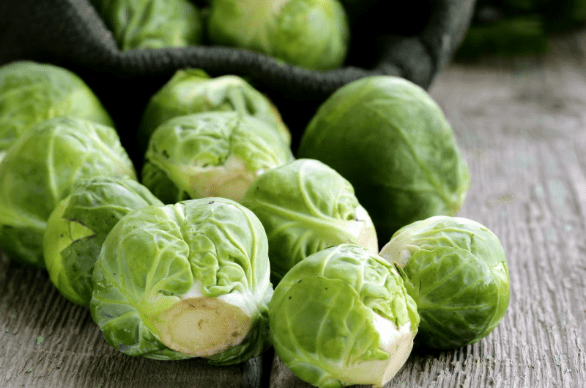
Brussels sprouts offer vitamin C and anti-inflammatory compounds.
- Benefits: Promotes joint flexibility, reduces fluid retention.
- Key Nutrients: Vitamin C, vitamin K, fiber.
- Serving Idea: Roast with garlic and olive oil for a crispy side.
A 2021 study in Phytotherapy Research noted Brussels sprouts’ anti-inflammatory effects on joints.
6. Tomatoes
Tomatoes are high in lycopene and vitamin C, supporting vascular health.
- Benefits: Strengthens blood vessels, reduces leg puffiness.
- Key Nutrients: Vitamin C, lycopene, potassium.
- Serving Idea: Blend into a fresh gazpacho soup.
A 2022 study in the Journal of Nutrition linked lycopene to improved circulation and reduced edema.
7. Green Beans
Green beans provide vitamin C and silica, which support collagen formation.
- Benefits: Enhances joint mobility, reduces swelling.
- Key Nutrients: Vitamin C, silica, fiber.
- Serving Idea: Sauté with almonds for a crunchy dish.
A 2020 study in Nutrients confirmed silica’s role in collagen synthesis.
8. Cauliflower
Cauliflower is a versatile source of vitamin C and antioxidants.
- Benefits: Supports joint health, reduces inflammation.
- Key Nutrients: Vitamin C, folate, antioxidants.
- Serving Idea: Mash as a low-carb alternative to potatoes.
A 2019 study in Food Chemistry noted cauliflower’s anti-inflammatory properties for joint support.
Quick Reference Table
| Vegetable | Key Nutrients | Main Benefit | Serving Idea |
|---|---|---|---|
| Spinach | Vitamin C, magnesium | Collagen synthesis, circulation | Smoothies, sautéed |
| Bell Peppers | Vitamin C, flavonoids | Vessel strength, less swelling | Salads, roasted |
| Broccoli | Vitamin C, sulforaphane | Joint repair, anti-inflammatory | Steamed, lemon-tossed |
| Kale | Vitamin C, copper | Connective tissue support | Salads, baked chips |
| Brussels Sprouts | Vitamin C, vitamin K | Joint flexibility, less edema | Roasted, garlic-seasoned |
| Tomatoes | Vitamin C, lycopene | Vascular health, reduced puffiness | Gazpacho, fresh salsa |
| Green Beans | Vitamin C, silica | Joint mobility, less swelling | Sautéed with almonds |
| Cauliflower | Vitamin C, antioxidants | Joint health, anti-inflammatory | Mashed, roasted |
How to Incorporate These Vegetables into Your Diet
Adding these collagen-boosting vegetables to your meals is simple and delicious. Here are practical ways to enjoy them daily.
Meal Ideas
- Breakfast Smoothie: Blend spinach, kale, and a splash of orange juice for a vitamin C-packed start.
- Lunch Salad: Toss bell peppers, tomatoes, and green beans with olive oil and lemon for a refreshing meal.
- Dinner Side: Roast Brussels sprouts and cauliflower with garlic for a nutrient-dense side dish.
- Soup: Simmer broccoli and tomatoes into a hearty vegetable soup for comfort and health.
Sample Daily Plan
- Morning: Spinach and bell pepper smoothie.
- Midday: Kale salad with tomatoes and grilled chicken.
- Evening: Steamed green beans and roasted cauliflower with fish.
Preparation Tips
- Cook Lightly: Steam or lightly sauté to preserve nutrients like vitamin C.
- Pair with Protein: Combine with lean meats or legumes to enhance collagen synthesis.
- Season Simply: Use olive oil, lemon, or herbs to avoid excess sodium, which can worsen swelling.
Benefits for Seniors’ Legs and Joints
These vegetables offer targeted benefits for seniors dealing with leg swelling and joint discomfort.
Reduced Swelling
Vitamin C and potassium in these veggies strengthen blood vessels and promote fluid balance, reducing edema. A 2021 study in Vascular Health and Risk Management found diets rich in vitamin C improved circulation in older adults.
Improved Joint Mobility
Collagen-supporting nutrients like copper and silica enhance cartilage health, easing stiffness. A 2020 study in Arthritis Care & Research noted improved joint function with higher vitamin C intake.
Less Inflammation
Antioxidants like lycopene and sulforaphane reduce inflammation, alleviating pain and swelling. This is crucial for seniors with arthritis or circulatory issues.
Stronger Blood Vessels
Lycopene and flavonoids strengthen veins, preventing fluid leakage that causes puffiness in legs.
Enhanced Overall Wellness
These nutrient-dense foods boost immunity and energy, supporting active aging.
Real-Life Success Story
Margaret, a 68-year-old retired teacher, struggled with swollen ankles and knee stiffness, making daily walks painful. After learning about collagen-boosting foods, she added spinach, broccoli, and tomatoes to her meals daily. Within a month, her swelling decreased, and her joints felt more flexible. “I can enjoy my garden again without discomfort,” she shared. Margaret also elevated her legs daily, amplifying the results. Her experience aligns with a 2022 study in the Journal of Geriatric Medicine, showing plant-based diets reduce edema and joint pain in seniors.
Lifestyle Tips to Support Leg and Joint Health
To maximize the benefits of these vegetables, adopt these habits:
- Elevate Legs: Raise legs above heart level for 15–20 minutes daily to reduce swelling.
- Stay Active: Walk, swim, or do gentle yoga for 30 minutes daily to improve circulation.
- Stay Hydrated: Drink 8–10 glasses of water to support fluid balance.
- Reduce Sodium: Limit salt to 2,300 mg daily to prevent water retention.
- Wear Compression Socks: These improve blood flow, especially for frequent swelling.
- Maintain Healthy Weight: Excess weight stresses joints; a balanced diet helps.
Precautions and Safety Considerations
While these vegetables are safe for most, take these precautions:
- Consult a Doctor: If you have kidney issues, arthritis, or take medications, check for dietary restrictions.
- Allergies: Test for sensitivities to vegetables like tomatoes or spinach.
- Moderation: Overeating certain veggies (e.g., spinach) may affect those on blood thinners due to vitamin K.
- Medical Conditions: Persistent swelling may signal heart or kidney issues; seek medical advice.
Who Should Be Cautious?
| Condition/Group | Reason |
|---|---|
| Kidney Issues | High potassium may strain kidneys |
| Blood Thinner Users | Vitamin K in greens may affect medication |
| Allergic Individuals | Potential reactions to specific veggies |
Why Choose These Vegetables?
These collagen-boosting vegetables are affordable, widely available, and free from the side effects of supplements. They’re sustainable, support overall health, and align with a senior-friendly, anti-inflammatory diet. By choosing whole foods, you’re investing in long-term wellness.
FAQs About Collagen-Boosting Vegetables
Can I eat these vegetables daily? Yes, 2–3 servings daily are safe and beneficial for most seniors. Consult a doctor if you have health conditions. How soon will I notice reduced swelling? Many see improvements in 2–4 weeks with consistent intake and lifestyle changes. Do I need collagen supplements? Whole foods like these vegetables often provide enough nutrients for collagen support. Supplements may help but consult a doctor. Can these help with arthritis? They may reduce inflammation and support joint health but aren’t a cure. Follow medical advice for arthritis.
Conclusion
These eight collagen-boosting vegetables—spinach, bell peppers, broccoli, kale, Brussels sprouts, tomatoes, green beans, and cauliflower—offer a natural way to ease leg swelling and joint discomfort in seniors. Packed with vitamin C, antioxidants, and other nutrients, they support collagen production and overall wellness. Combine them with healthy habits like leg elevation and exercise for best results. Always consult a healthcare professional for persistent issues. Note: This content is for informational purposes only and does not replace professional medical advice. Ready to nourish your legs and joints? Visit our website for more senior health tips!




